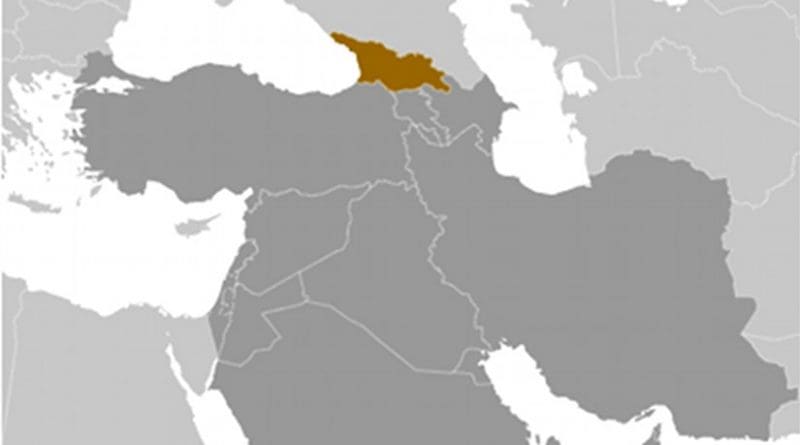Georgia: Parliament Set To Adopt Presidential Objections On Constitutional Court Bill
By Civil.Ge
(Civil.Ge) — Georgia’s Parliamentary human rights committee supported on June 1 presidential objections to the bill on Constitutional Court, setting stage for adopting an amended version of the bill, which may reduce, but not fully remove, controversy surrounding the issue.
The bill, proposed by the ruling GDDG party, increasing the quorum required for the Constitutional Court to decide cases was adopted by the Parliament on May 14.
President Giorgi Margvelashvili vetoed the bill on May 31, few days after the Council of Europe’s advisory body for legal and constitutional affairs criticized those clauses of the bill, which were source of concern for many watchdog groups, and because of which opposition lawmakers were strongly against of the bill; MPs from the Republican Party, who remain in coalition government with GDDG party, were also against of the bill.
President’s objections, which the Parliament has to either adopt or override the veto, was drafted as a result of consultations between the President, PM Giorgi Kvirikashvili, Parliament Speaker Davit Usupashvili, and senior GDDG lawmakers.
Although the president’s office insists that the objections were drafted fully in line with the Venice Commission’s opinion, opponents have suggested that the revised bill is a result of a political compromise between the president and government, which fails to fully reflect recommendations of the Venice Commission.
Representatives of some civil society groups, who are part of the Coalition for Independent and Transparent Judiciary and who were present at a committee hearing in the Parliament on June 1, noted that although the presidential objections improve the bill, adopted by the Parliament, it still falls short of the recommendations laid out by the Venice Commission in its preliminary opinion on May 27.
Parliament-adopted bill increases quorum both for the Constitutional Court to take decisions, when adjudicating a case in full bench, and for the Court to be able to sit in full bench.
President’s objections offer to keep the increased quorum on limited number of, and not on all cases.
According to the existing legislation, when adjudicating a case in full bench, the 9-member Constitutional Court is eligible to proceed if at least 6 judges are present.
The bill, adopted by the Parliament, envisages increasing this number to 7 judges.
The existing legislation requires support of simple majority of judges for taking a decision – that is 4 judges in case minimum required 6 judges are present, and 5 judges if all nine are present.
Under the new bill decisions should be taken by at least 6 judges – no matter whether minimum required 7 judges will be present or all nine of them.
The Venice Commission said in its preliminary opinion that it “strongly recommends removing… the requirement of a minimum of six votes for the taking decisions.”
President’s objections offer to keep the high quorum (presence of at least 7 judges and taking decisions with six votes) when the Constitutional Court adjudicates cases involving organic laws; disputes related to elections or referendum; impeachment of President, chief justice, government member, head of the state audit agency and central bank board member; as well as cases involving revoking of the judicial immunity of a Constitutional Court judge.
Decisions in all other cases, according to the presidential objections, will need currently existing lower quorum (presence of at least 6 judges and support of simple majority of judges present in the plenary).
Representatives of the Coalition for Independent and Transparent Judiciary said during the committee hearing on June 1, that they may take the bill into the Constitutional Court as they are against of keeping high quorum on taking decisions on organic laws.
“Wish you success with the constitutional complaint – that’s your right to appeal to the Constitutional Court,” responded Irina Imerlishvili, the secretary of President’s National Security Council, who presented presidential objections at the committee hearing.
President Giorgi Margvelashvili has also claimed that his objections are fully based on the Venice Commission’s recommendations.
“What is written in the Venice Commission’s recommendations has been taken into consideration in our veto word by word,” President Margvelashvili told journalists in Batumi where he was hosting his Slovak counterpart Andrej Kiska on June 1.
He also said that during his consultations with the government, when drafting the objections, “the starting point was the document prepared by the Venice Commission.”
According to the Parliament-adopted bill, during the last three months of his or her 10-year mandate, the judge is not allowed to participate in new cases, except in cases relating to electoral disputes, impeachment cases against high officials, and when deciding admissibility cases.
The Venice Commission said that “from a European perspective, the introduction of a three-month period seems arbitrary.”
The presidential objections to the bill reflect fully the Venice Commission’s recommendations and offers to remove this controversial clause.
In other controversial changes, according to the bill decisions on suspending a disputed legislative clause as an interim measure pending final verdict should be taken by full bench; currently such interim decision can be taken by a panel of four judges.
The Venice Commission said on this issue: “It is not logical that an interlocutory decision which is urgent by its very nature should be taken in a more complicated procedure, which includes a transfer of the case from the board to the plenary session and then back to the board for the decision on the merits.”
The presidential objections leave this controversial clause in the bill, but envisage taking an interlocutory decision in the plenary with a simple majority.
The Parliament is expected to discuss and adopt presidential objections at a session, which has been convened for June 3-4.
The parliamentary committee hearing on June 1 was not attended by the opposition lawmakers. A member of the human rights committee from the Republican Party, which was against of the bill when the Parliament adopted it, voted in favor of the presidential objections.

